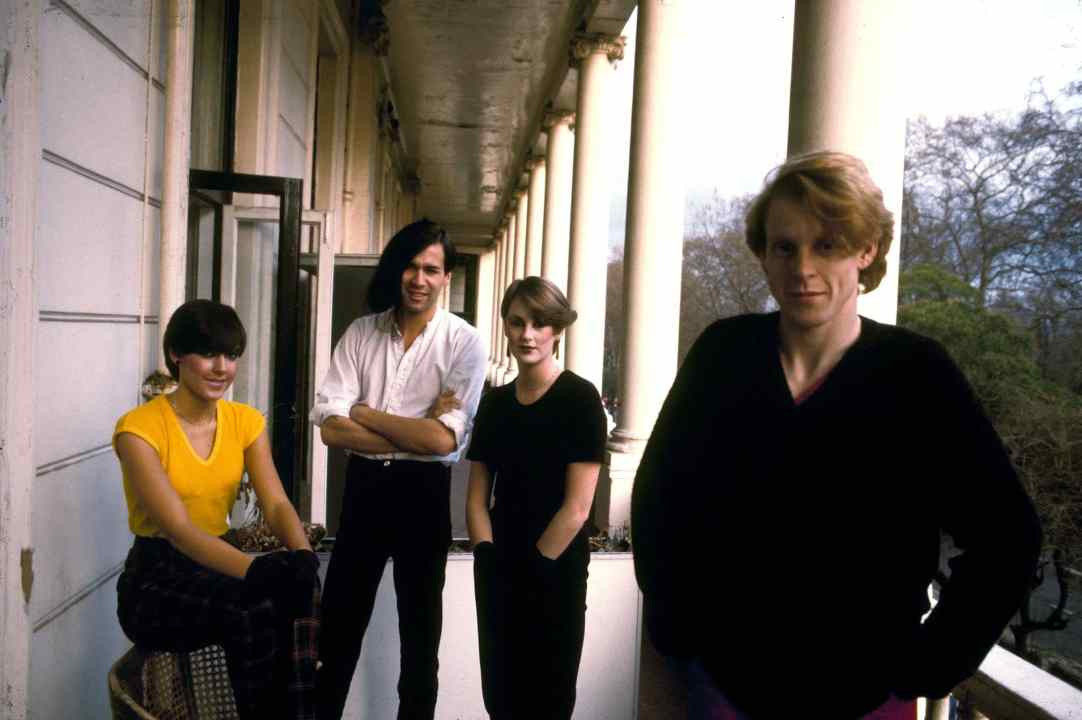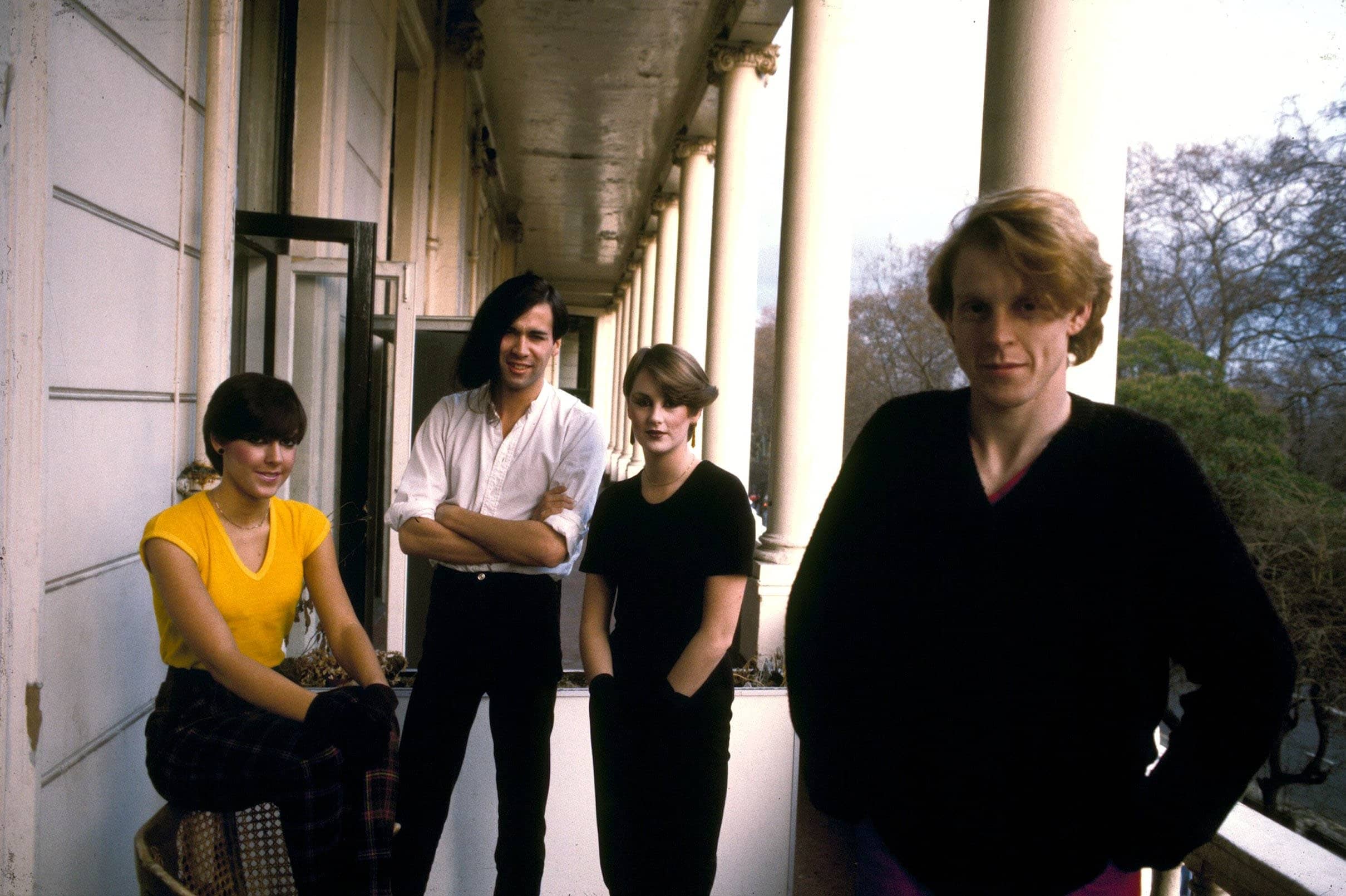The Human League’s Don’t You Want Me, 40-years-old this month, is not merely great. It may be the greatest pop song ever.
Pop is an open invitation. It creates, as Don’t You Want Me did in the bleak midwinter of 1981/82, a warm glow of collective experience. This is the wellspring of any profundity we attribute to it. That’s true of all pop’s grand arias, such as She Loves You, West End Girls, Dancing Queen, Reach Out And I’ll Be There, Billy Jean or Hit Me Baby One More Time. Whereas River Deep Mountain High is deliberately epic (no bad thing), Don’t You Want Me is greater still by its accidental nature. What could be a finer example of perfect pop than something that wasn’t intended to be so?
A modern reading of the lyrics is that Oakey’s persona is textbook toxic masculinity. The words are not those of a love song, but a game of power and rejection
The Human League Mark II, without two founding members Martyn Ware and Ian Craig Marsh. but including Sheffield nightclub-haunting teenagers Susan Ann Sulley and Joanne Catherall, had become what the singer Phil Oakey had always wanted: less JG Ballard set to Kraftwerk, more a blend of Giorgio Moroder and Motown. The album Dare had already provided three big hits in 1981. Two of them, Sound Of The Crowd and Love Action (I Believe In Love), are better songs than Don’t You Want Me, an afterthought Oakey believed unworthy of attention released by Virgin against his wishes. He thought it ‘too poppy’ (even Oakey nods). He was right, though he had it back to front. ‘Too poppy’ can be a compliment. It became the best-selling song of the year and Christmas No1.
The nervy opening, a 16-beat tick tock, teases you into the portentous verse and bridge. Don’t You Want Me was the second UK No1 of 1981 to be made entirely on synthesisers after Soft Cell’s Tainted Love, with the rough edges of Yamahas, Corgis, Rolands and Casios rendered smooth by producer Martin Hamnet, a euphony freed from the ego-stroking demands of guitars, bass and drums.
The narrative is exquisitely simple. Boy meets girl (in a cocktail bar); boy turns girl into someone new; girl decides to live her life on her own, with the lyrical innovation of a five-year jump cut seen from two perspectives. Where the verse intrigues, the chorus erupts. ‘Don’t You Want Me, Oooooohhh’ is an incantation that mutates for the dancefloor, at Karaoke, in a bedroom, a car or a stadium. My children, who have more than once asked me what I did in the war and who see me as a kind of useless 80s Gandalf, responded emphatically to hearing Don’t You Want Me. Play it again, play it louder, sing along.
The video has the glamour of dressing-up box culture: wintry-night exhalation on a movie set, the wheelspin of a Pharaoh Gold Rover SD1, the dust falling through the columned glare of a spotlight, with working-class heroes play-acting the making of a murderous thriller cheaper than a Blankety Blank cut-glass decanter.
Tina Turner proved screaming can get pop’s earnest message across, but the League, as was the fashion, favoured the power of the furtive look, with eyes moving in cool suspicion. This wasn’t so much dance music as glance music. Sulley and Catherall’s vocals resonated because it was what the girls in your school sounded like when they sang along to the Human League. Their fantasy of the high life was the same as yours. In the year of the royal wedding, Sulley’s blonde flick was rivalled only by that of Diana Spencer’s.
It’s distasteful to drive down the ‘things were better in my day’ cul-de-sac (as if I ever had ‘a day’) but the British public are now so hopeless the government makes public information broadcasts asking us not to park on the fast lane of the motorway. A modern reading of the lyrics is that Oakey’s persona is textbook toxic masculinity. The words are not those of a love song, but a game of power and rejection, as Oakey has always acknowledged. That’s hardly a dynamic confined to the bad old days of 1981, and the fact Gen Z ears hear toxicity suggests not much has changed. There’s nothing unfamiliar in 2021 about paranoid, possessive men and ambitious, freedom-loving women – or vice versa. Just because you don’t like something doesn’t mean it will go away.
There was a 1984 Kit-Kat advert on TV in which a record company exec listened to the inane demo tape of some Day-Glo urchins who had come looking for a deal. ‘You can’t sing, you can’t play, you look awful… You’ll go a long way.’ This was, in part, a nod to the League, or at least the lesser acts who followed them. It was an unfair comparison, but also an acknowledgement of the extent to which pop had been reduced to elementals. In a pop periodic table, Don’t You Want Me would be hydrogen.
This music for the masses kept evolving through the calculated emotion of Motown, the wit of The Kinks and the cosplay of T Rex, but by becoming about nothing other than itself, it had also reached a kind of end point. The Human League were as pure as pop got, and Don’t You Want Me was as pop as the loveable League got. Purity can be a terrible thing (unless you’re talking about drinking water) but with pop music, purity doesn’t mean antiseptic or repressive, but rather something joyous for everyone to share. And something we’ve lost. That’s not nostalgia, it’s the things that dreams are made of.







Comments